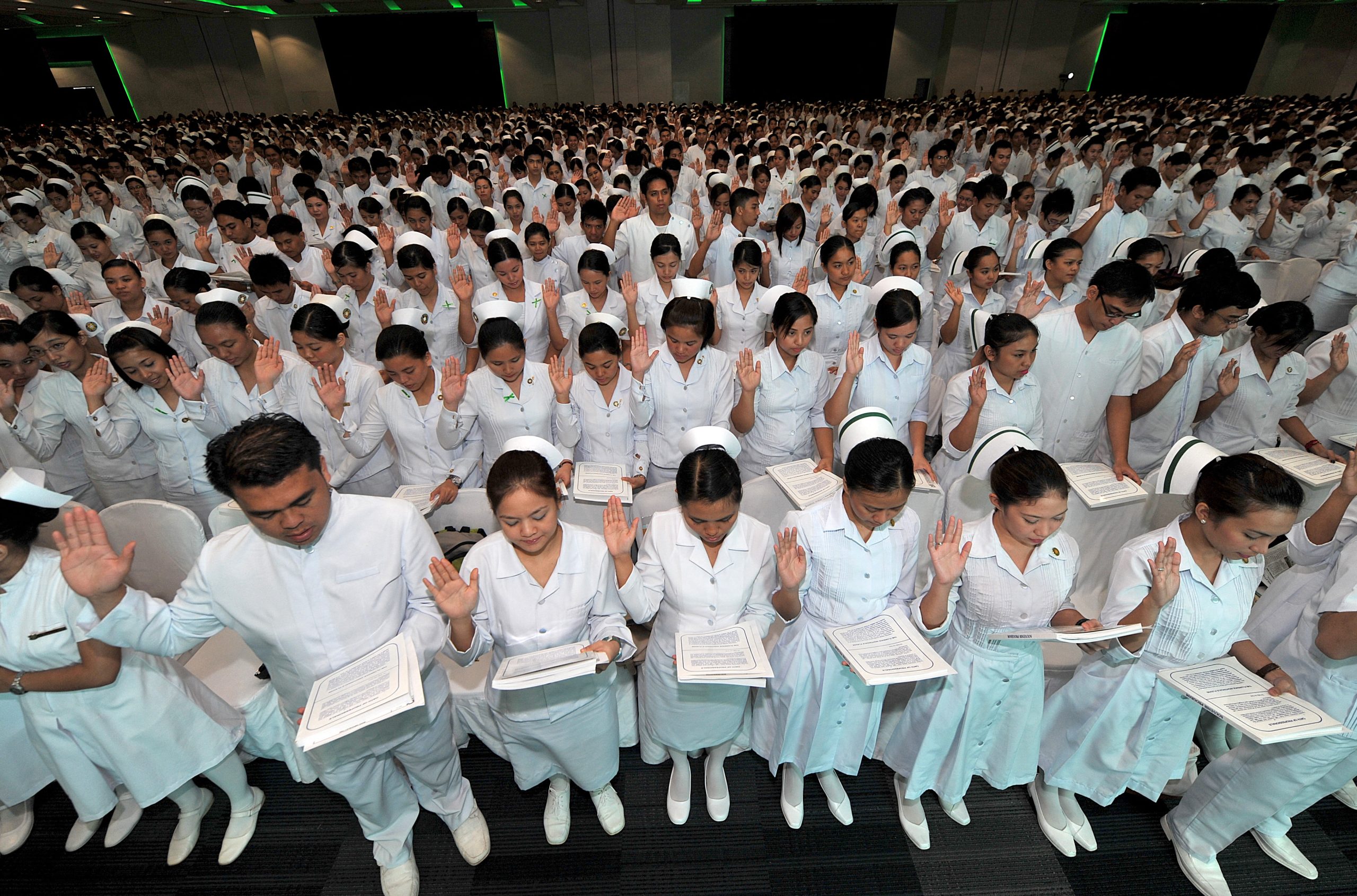Over half of the nurses have emigrated abroad and the government would like to hire unlicensed workers. But the problem is low wages and working conditions
Over half of active nurses have emigrated abroad: in the Philippines the flight of health workers has turned into a true national emergency, so much so that it has pushed the government to propose hiring graduates without qualifications.
In the Asian country the phenomenon is not new, and the massive presence of Filipino personnel in hospitals around the world is evident not only in the West but also in Japan, Singapore and, in particular, in the Arabian Peninsula: a visit to the clinics of the Emirates gives an idea of how the local healthcare system would collapse without the essential contribution of nurses from the Philippines, who number 130,000 in nearby Saudi Arabia.
Today, however, this exodus has reached unprecedented levels, causing serious repercussions at home: the Department of Health has raised the alarm, declaring that the country is short of 350,000 nurses. The body’s secretary Teo Herbosa said that “hospitals are reducing the number of beds because they are unable to meet the ratio of patients to their carers.” Among the authorized operators, on the other hand, 316,000 – or 51% of the total, in fact – had emigrated abroad in 2021.
This is why – the same body announced – even graduates who have not passed the professional qualification exams will be granted a temporary license to help fill part of the vacancies in government structures. An opportunity which, according to Herbosa himself, would bring a double advantage, given that “direct work experience would be profitable for graduates”.
This emergency measure, however, does not address the causes at the origin of a phenomenon that has worsened with the Covid-19 pandemic: very low wages and often unsustainable working conditions. “Many nurses look after up to 50 patients in a single shift, for a minimum wage,” has underlined several times Jocelyn Andamo, general secretary of Filipino Nurses United (FNU), the main national trade union. The problem, those involved argue, is not the lack of qualified personnel, but the fact that these professionals – in most cases women, who often leave behind their children who are destined to suffer the consequences of maternal absence – prefer to move abroad. abroad rather than accept an unsustainable situation at home, aggravated by inflation which in the last year has been the highest in South-East Asia.
Il think tank Ibon Foundation (founded in the 1970s by the religious and activist Sister Mary Soledad Perpiñan) recently estimated that a Filipino family must earn at least 1,147 pesos (21 dollars) a day to satisfy basic needs and be able to save something, but according to the latest survey carried out by the Department of Labor and Employment (in 2018) the average monthly salary of a nurse, nationwide, was only 679 pesos. That is, among the lowest wages in the entire region, the data aggregator IPrice calculated during the Covid pandemic: an experienced professional, who in the Philippines could aspire to earn 40,381 pesos per month (741.8 dollars), in Vietnam he would have been paid 57% higher, and in Singapore he would have received 486% more than at home.
An incentive added to the hardship of a category heavily neglected in the toughest months of the health emergency, if it is true that many operators have had to bear the costs of their personal protective equipment alone, and are still waiting for the 12.57 billion pesos (over $231 million) in Covid benefits not paid by the government.
Under these conditions, many people decide to abandon not only the country but also their profession, to choose unskilled jobs, from call centers to online retail sales. The data is clear, and disheartening: the Philippine Regulatory Commission has announced that less than 54% of the nearly one million registered nurses in the country are currently active. The staff, therefore, would be there, but they are not willing to put their coats back on. For this reason, according to local observers, the intentions of President Marcos Jr, who has undertaken to conclude agreements with foreign countries to “import” nurses and to facilitate the qualification of Filipino ones, avoid addressing the root of the problem. «We believe – stated the president of FNU Eleanor Nolasco – that only when the government guarantees a decent wage – and our request is 50,000 pesos entry salary in both the public and private sectors – and when they are granted to nurses adequate work standards and benefits, then these people will agree to return to the wards.”
